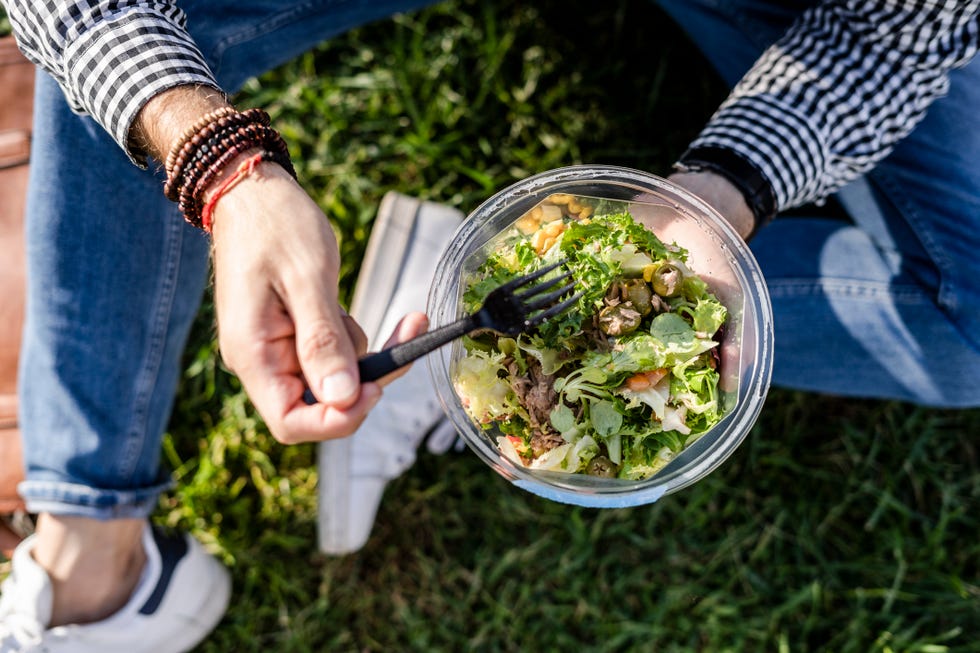Despite the ever-changing buzz around different diet plans—from keto and intermittent fasting to plant-based lifestyles—counting calories is a method that has stood the test of time. For many Nigerians and West Africans striving to lose weight, build muscle, or just understand their nutrition better, monitoring calorie intake remains an accessible tool, especially in the absence of expensive diet programs or fancy gadgets.
Although calorie counting may appear outdated to some, if approached the right way, it can still play a significant role in promoting healthier habits. Across African cities like Lagos, Abuja, and Accra, more men and women are adopting this approach, not just to slim down for weddings or beach holidays, but also to enhance their performance during football matches, long-distance runs, and gym workouts.
“It’s sometimes eye-opening to track what you eat for a week, especially if you’re aiming to reach specific fitness or health goals,” explained nutritionist Chidinma Eze, based in Lagos. “Even if you don’t do it forever, it can help a person understand what changes they need.” According to Eze, calorie tracking is especially beneficial for those who need a short-term reset or are managing a specific health condition.
It is not necessary to jot down every meal and snack for the rest of your life. However, understanding how your body uses energy and how different foods contribute to your wellbeing can guide better meal choices each day. This article breaks down what a calorie truly is, how many calories Nigerian and West African men typically need, and whether tracking your intake is worth your time and effort.
What Does “Calorie” Mean in Everyday Life?
Simply put, calories—or more accurately, kilocalories—measure energy. In science, one kilocalorie is the amount of heat required to raise a kilogram of water by one degree Celsius. But in everyday life, a calorie represents the fuel your body needs to function: from breathing and thinking to trekking through Lagos traffic or pounding the local football pitch.
Most of the energy we get comes from three groups: protein, fat, and carbohydrates. Every gram of protein and carbohydrate contains about 4 calories, while fat supplies about 9. That’s why foods cooked with palm oil or groundnut oil, such as akara or suya, tend to be more calorie-dense than, say, a bowl of pounded yam without sauce.

How Many Calories Do Nigerian Men Actually Need?
The average Nigerian man’s daily calorie needs vary based on age, size, and activity level. While international guidelines (such as those from the World Health Organization) place the daily requirement for men around 2,000 to 3,000 calories, individual needs fluctuate. Someone navigating hectic markets or working on a construction site in Abuja could need far more than a sedentary office worker in Victoria Island.
If weight loss is your goal, nutritionists, including Chidinma Eze, warn against cutting calories too drastically. “For most adult men, dipping below 1,500 calories daily can be dangerous, leading to fatigue and even weakening your immune system,” Eze said. Moderately active men in Nigeria and Ghana typically do well at around 2,500 calories a day for maintenance.
Tailoring Calorie Needs: Why Age, Body Size, and Lifestyle Matter
No magic number fits everyone. “Calorie needs depend on many factors: age, genetics, physical activity, and muscle mass,” said Anya Rosen, a registered dietitian. Most men naturally burn more energy than women, largely due to higher muscle mass and average body weight. Someone who jogs in the morning and plays evening football will obviously need more fuel than a sedentary person. For context, moderately active men exercising three to five times a week in African cities often require between 2,700 and 2,900 calories daily to maintain their weight.

Watching the Scale: How Many Calories to Lose Weight?
Achieving a leaner build comes down to maintaining a calorie deficit: consuming fewer calories than you burn. For a gradual, healthy reduction, most dietitians recommend aiming for a deficit of 500 to 1,000 calories per day. This typically translates to a weight loss of around 0.5 to 1kg per week—an attainable target for many Nigerian men. That means daily calorie intake may range from 1,800 to 2,300 calories, depending on where you start. Importantly, very low-calorie diets can lead to cravings, constant tiredness, and flagging exercise performance, so moderation is crucial.
How Many Calories Are Needed to Gain Muscle?
If building muscle is your goal—especially popular among young Nigerians who frequent the gym—you need to boost your calorie intake slightly above your maintenance level. Most experts suggest adding 300-500 calories daily, particularly when strength training regularly. According to Dr. Emmanuel Ojo, a fitness coach in Ibadan, “consuming between 3,000 and 3,300 calories may be necessary for those with high activity levels or recovering from illnesses.” Even fighting infections, healing wounds, or recovering from malaria increases your body’s demand for energy.
Dividing Your Calories: Is Meal Timing Important?
The structure of meals can make a difference. Nutritionists in Abuja recommend spreading calories evenly across three main meals and two snacks to keep your energy stable during Nigeria’s hot afternoons and busy evenings.
For those targeting roughly 2,400 calories per day, the breakdown might look like:
- 600–700 calories for breakfast, lunch, and dinner each
- 200–300 calories for each snack—think fruit, moi moi, or a small portion of nuts
Of course, some individuals feel their best with a hearty breakfast and lighter dinner, while others are the opposite. The goal is to create a pattern that matches your energy demands and daily routine.
Does Age Reduce Your Calorie Needs in West Africa?
Absolutely. As people age, their metabolism slows due to natural muscle loss and shifting hormones. This is a universal truth, whether you’re in Kano, Cape Coast, or Cape Town.

For men, a rough guideline is:
- Young adults (20s to 30s): 2,500–3,000 calories (with moderate to high activity)
- Middle-aged (40s to 50s): 2,300–2,700 calories
- Seniors (60+): 2,000–2,500 calories
While these shifts aren’t dramatic, it’s wise to adjust your intake over time—especially if you’re less active than before.
A Practical Way to Determine Your Calorie Needs
There is no foolproof formula, but tracking your habits for a week can offer clarity. Registered dietitian Adebayo Ogunleye, writing for Nutrition Nigeria, recommends recording what you eat (without making changes) and checking if your weight remains the same. If it does, you’ve found your maintenance level. From there, you can adjust higher or lower to fit your goals. Several apps—including MyFitnessPal, FatSecret South Africa, and Lose It!—offer databases of Nigerian and African foods to make tracking easier.
Does More Muscle Mean More Calories Burned?
Muscle tissue does burn more calories than fat, but perhaps not as much as pop culture claims. According to research published in the Proceedings of the National Academy of Sciences, a kilo of muscle burns 13 to 15 calories per day while fat burns only 4 to 5. However, your organs, including your brain, liver, and heart, are actually the main engines for burning energy. Body composition matters, but not as dramatically as some gym myths suggest.
The Importance of Exercise For Nigerian Lifestyles

Physical activity—from traditional dancing to trekking for public transport—plays a vital part in managing calorie burn. Cardiovascular activities like running or playing football use up more energy during the workout, while resistance training increases your base metabolism by helping you build muscle. Everyday movements—walking to school, fetching water, or cleaning the house—also add up. Balanced exercise routines, combining cardio and strength training, give you the best foundation for reaching your calorie and body goals.
Do You Really Need to Count Every Calorie?
Not always. Counting calories can help clarify your needs for short-term goals, but it is not required for long-term wellbeing. “When people focus solely on numbers, they may ignore food quality,” said Abuja-based dietitian Blessing Adeyemi. “For example, 200 calories from grilled fish or beans nourishes you differently than the same calories from soft drinks or doughnuts.”
To avoid getting stuck on numbers, aim for a balanced plate instead:
- Fill half your plate with vegetables and fruit—like ugu, spinach, or mango
- Use the other half for lean protein, such as fish, chicken, or beans, alongside whole grains or healthy carbohydrates like brown rice or sweet potatoes
If you feel energetic, perform well, and recover quickly after activities—your nutritional approach is likely working for you.
Wrapping Up: Is Calorie Tracking Right for West Africans?
Tracking calories can be a valuable tool for those seeking short-term results, such as weight loss or muscle gain. Long-term, the focus should shift to understanding your individual needs, choosing wholesome local foods, and avoiding drastic restrictions. When in doubt, seek advice from a qualified dietitian or doctor, especially if you have medical concerns or a history of eating challenges. Always remember: it’s not just about the calorie total—what matters most is the overall quality and balance of your diet.
Do you think calorie counting is feasible in the Nigerian context, given our diverse cuisines and eating habits? Have you ever tracked your meals or found it helpful? Share your experience or strategies in the comments below—and don’t forget to follow us for more wellness tips tailored to West Africa!
Some data in this article is sourced from global guidelines and local Nigerian experts. For specialized advice, consult registered professionals.
Got a health story, nutrition tip, or inspiring weight loss journey you’d like to share with fellow Nigerians and West Africans? Want your experience featured or have a story to sell? Reach out anytime at story@nowahalazone.com—your voice could inspire someone across Africa!
For feedback, general enquiries, or to contribute your own health and wellness experiences, email us at support@nowahalazone.com.
Connect with us and join the conversation on social media: Facebook, X (Twitter), and Instagram for real-time updates, wellness challenges, and community support!










